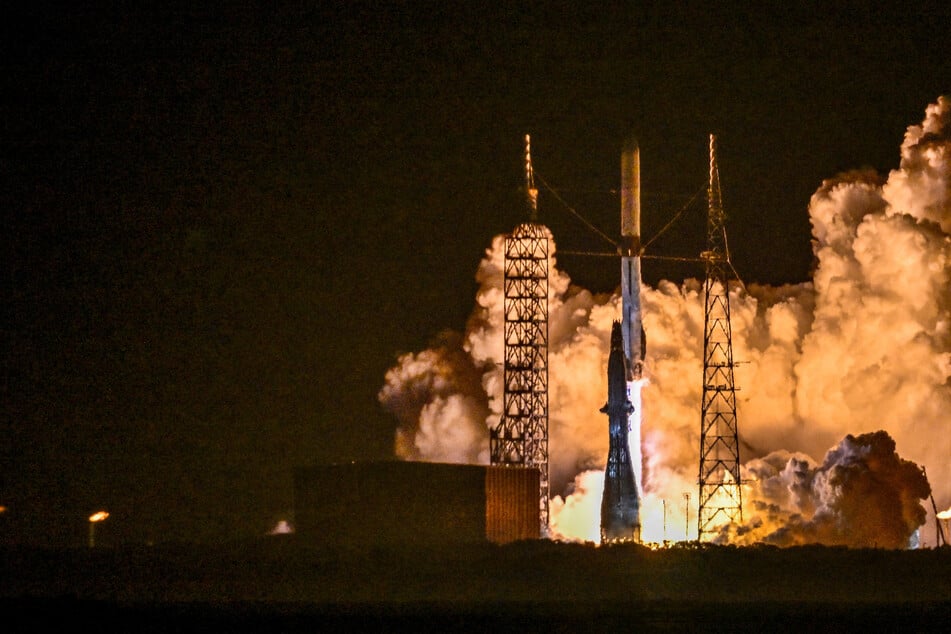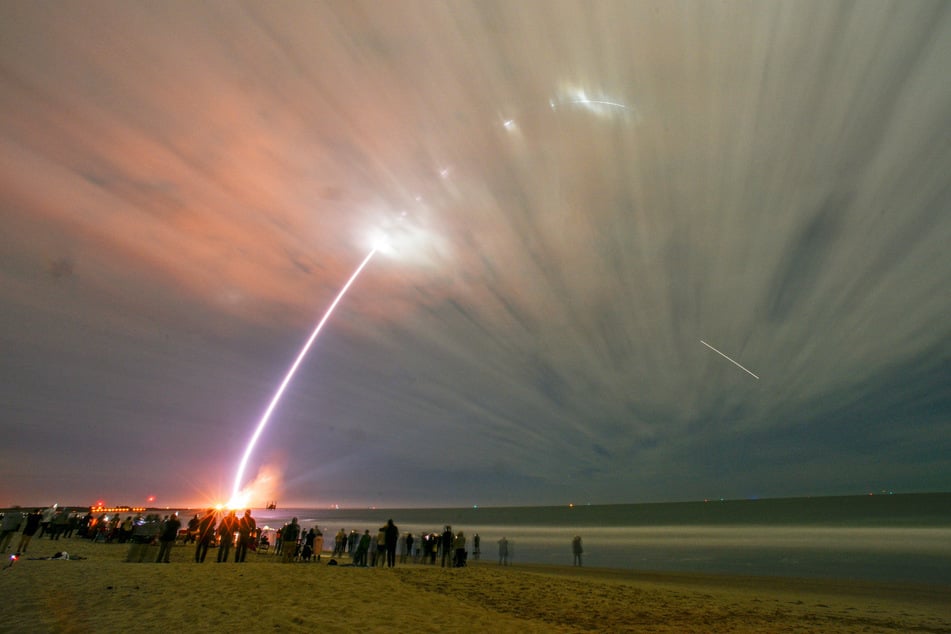Blue Origin celebrates big milestone with spectacular launch of New Glenn rocket
Cape Canaveral, Florida - Jeff Bezos' space company Blue Origin livestreamed the historic moment it launched its massive New Glenn rocket for the first time early Thursday.

The rocket, whose inaugural mission had been delayed by several years, blasted off at 2:03 AM ET from the Cape Canaveral Space Force Base.
The mission is seen as critical to Blue Origin's efforts to compete with Elon Musk's SpaceX, which dominates the commercial space industry.
"New Glenn has passed the Karman line, the internationally recognized boundary of space!" Blue Origin posted X just a few minutes after liftoff.
"Second stage engine cutoff confirmed. New Glenn's second stage and payload are now in orbit," it later added.
An initial test launch of the towering 320-foot rocket, named in honor of legendary American astronaut John Glenn, had been scheduled for early Monday morning, but it was canceled after repeated halts during the countdown.
The company later said it had discovered an icing issue on a purge line and would aim for a possible early Tuesday morning launch, but that weather conditions were unfavorable.
On Monday night, Blue Origin announced that launch had been postponed.
Blue Origin suffers booster setback

With the mission, dubbed NG-1, Amazon founder Bezos is taking aim at the only man in the world wealthier than him, far-right billionaire Elon Musk.
Musk's company SpaceX dominates the orbital launch market through its prolific Falcon 9 rockets, which have become vital for the commercial sector, Pentagon and NASA.
"SpaceX has for the past several years been pretty much the only game in town, and so having a competitor... this is great," G. Scott Hubbard, a retired senior NASA official, earlier told AFP, expecting the competition to drive down costs.
Upping the high-stakes rivalry, SpaceX also plans another orbital test this week of Starship – its gargantuan new-generation rocket.
Blue Origin's big day was slightly soured by one setback, as it failing to land New Glenn's first-stage booster on a drone ship stationed about 620 miles downrange in the Atlantic Ocean. The company confirmed the booster was lost upon reentry into the Earth's atmosphere.
Meanwhile, the rocket's upper stage will fire its engines toward Earth orbit, reaching a maximum altitude of roughly 12,000 miles above the surface.
A Defense Department-funded prototype of an advanced spaceship called Blue Ring, which could one day journey through the solar system, will remain aboard for the roughly six-hour test flight.
SpaceX dominance increasingly challenged
Physically, the gleaming white New Glenn dwarfs SpaceX's 230-foot Falcon 9 and is designed for heavier payloads.
It slots between Falcon 9 and its big sibling, Falcon Heavy, in terms of mass capacity but holds an edge with its wider payload fairing, capable of carrying the equivalent of 20 moving trucks.
Blue Origin has already secured a NASA contract to launch two Mars probes aboard New Glenn. The rocket will also support the deployment of Project Kuiper, a satellite internet constellation designed to compete with Starlink.
For now, however, SpaceX maintains a commanding lead, while other rivals – United Launch Alliance, Arianespace, and Rocket Lab – trail far behind.
Cover photo: REUTERS